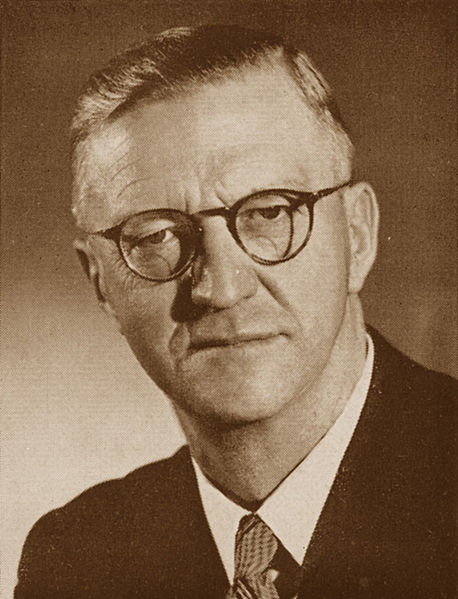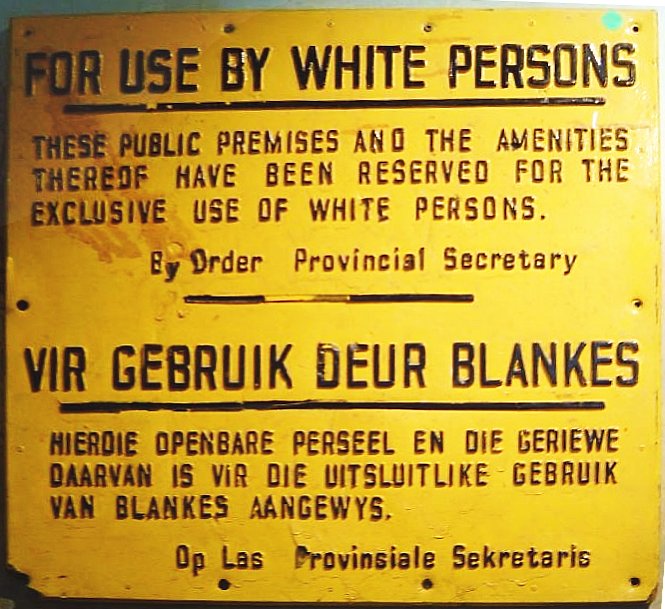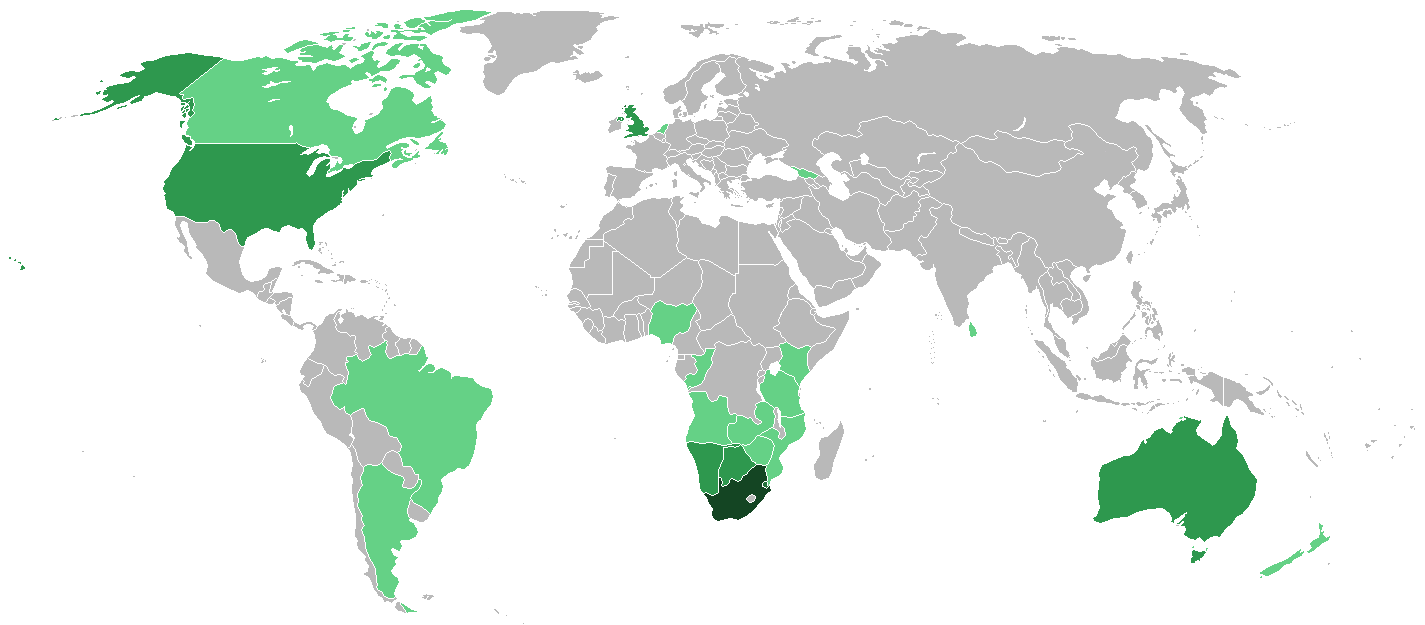|
Tom Naudé
Jozua François "Tom" Naudé (15 April 1889 – 31 May 1969) was a South African politician who served as acting state president of South Africa from 1967 to 1968. A National Party politician for many years, he served as Minister of Posts and Telegraphs from 1950 to 1954, as Minister of Health from 1954 to 1958, and as Minister of Finance from 1958 to 1961. He was then appointed President of the Senate of South Africa, and in terms of the South African Constitution of 1961 he would be required ''ex officio'' under a dormant commission to act as State President of South Africa whenever that office was vacant. He was unexpectedly called upon to do this when Dr Eben Dönges, who was elected to succeed C.R. Swart as State President in 1967, suffered a stroke and fell into a coma before he could be inaugurated. Naudé was Acting State President for ten months, until Dönges died and Jim Fouché was inaugurated in his place. Tom Naudé Technical High School in Polokwane Polokw ... [...More Info...] [...Related Items...] OR: [Wikipedia] [Google] [Baidu] |
Minister Of Finance (South Africa)
The minister of finance is a minister (government), minister in the Cabinet of South Africa who is the political head of the National Treasury (South Africa), National Treasury. The minister of finance is responsible for the financial management of government affairs, drawing up the budget, and developing economic policy (in cooperation with the Minister of Economic Development (South Africa), minister of economic development and the Minister of Trade and Industry (South Africa), minister of trade and industry). The minister of finance is also responsible for the South African Revenue Service. List, 1910–present References External linksOfficial website {{SACabinet Government ministers of South Africa, Finance Ministers of finance of South Africa, * Lists of political office-holders in South Africa ... [...More Info...] [...Related Items...] OR: [Wikipedia] [Google] [Baidu] |
State President Of South Africa
The State President of the Republic of South Africa () was the head of state of South Africa from 1961 to 1994. The office was established when the country 1960 South African republic referendum, became a republic on 31 May 1961, outside the Commonwealth of Nations, and Queen Elizabeth II ceased to be Monarchy of South Africa, Queen of South Africa. The position of Governor-General of South Africa was accordingly abolished. From 1961 to 1984, the post was largely ceremonial. After constitutional reforms enacted in 1983 and taking effect in 1984, the State President became an executive post, and its holder was both head of state and head of government. The State President was appointed by both Houses of the Parliament of South Africa (Senate of South Africa and the House of Assembly of South Africa) meeting jointly in the form of an electoral college for this purpose. The office was abolished in 1994, with the end of Apartheid and the transition to democratic majority rule. S ... [...More Info...] [...Related Items...] OR: [Wikipedia] [Google] [Baidu] |
Polokwane
Polokwane (, meaning "Sanctuary" in Northern SothoPolokwane - The Heart of the Limpopo Province. City of Polokwane official website. Retrieved on October 15, 2009.), also known as Pietersburg, is the capital city of the Limpopo Province in South Africa. It is the country's largest urban centre north of Gauteng. It was one of the nine host cities of the 2010 FIFA World Cup. History Early history In the 1840s, Voortrekkers under the leadership of Andries Potgieter, Andries Hendrik Potgieter established Schoemansdal, Limpopo, Zoutpansbergdorp, a town to the north. This settlement had to be abandoned because of clashes with the local tribes (Lebelo, Langa & Ledwaba clans), they founded a new town in 1886 and named it "Pietersburg" in honour of Voor ...[...More Info...] [...Related Items...] OR: [Wikipedia] [Google] [Baidu] |
Ministers Of Home Affairs Of South Africa ''
{{disambiguation ...
Minister may refer to: * Minister (Christianity), a Christian cleric ** Minister (Catholic Church) * Minister (government), a member of government who heads a ministry (government department) ** Minister without portfolio, a member of government with the rank of a normal minister but who doesn't head a ministry ** Shadow minister, a member of a Shadow Cabinet of the opposition ** Minister (Austria) * Minister (diplomacy), the rank of diplomat directly below ambassador * Ministerialis, a member of a noble class in the Holy Roman Empire * ''The Minister'', a 2011 French-Belgian film directed by Pierre Schöller See also *Ministry (other) *Minster (other) *''Yes Minister ''Yes Minister'' is a British political satire sitcom written by Antony Jay and Jonathan Lynn. Comprising three seven-episode series, it was first transmitted on BBC2 from 1980 to 1984. A sequel, ''Yes, Prime Minister'', ran for 16 episodes f ... [...More Info...] [...Related Items...] OR: [Wikipedia] [Google] [Baidu] |
Ministers Of Health Of South Africa ''
{{disambiguation ...
Minister may refer to: * Minister (Christianity), a Christian cleric ** Minister (Catholic Church) * Minister (government), a member of government who heads a ministry (government department) ** Minister without portfolio, a member of government with the rank of a normal minister but who doesn't head a ministry ** Shadow minister, a member of a Shadow Cabinet of the opposition ** Minister (Austria) * Minister (diplomacy), the rank of diplomat directly below ambassador * Ministerialis, a member of a noble class in the Holy Roman Empire * ''The Minister'', a 2011 French-Belgian film directed by Pierre Schöller See also *Ministry (other) *Minster (other) *''Yes Minister ''Yes Minister'' is a British political satire sitcom written by Antony Jay and Jonathan Lynn. Comprising three seven-episode series, it was first transmitted on BBC2 from 1980 to 1984. A sequel, ''Yes, Prime Minister'', ran for 16 episodes f ... [...More Info...] [...Related Items...] OR: [Wikipedia] [Google] [Baidu] |
Afrikaner People
Afrikaners () are a Southern African ethnic group descended from predominantly Dutch settlers who first arrived at the Cape of Good Hope in 1652.Entry: Cape Colony. ''Encyclopædia Britannica Volume 4 Part 2: Brain to Casting''. Encyclopædia Britannica, Inc. 1933. James Louis Garvin, editor. Until 1994, they dominated South Africa's politics as well as the country's commercial agricultural sector. Afrikaans, a language which evolved from the Dutch dialect of South Holland, is the mother tongue of Afrikaners and most Cape Coloureds. According to the South African National Census of 2022, 10.6% of South Africans claimed to speak Afrikaans as a first language at home, making it the country's third-largest home language after Zulu and Xhosa. The arrival of Portuguese explorer Vasco da Gama at Calicut, India, in 1498 opened a gateway of free access to Asia from Western Europe around the Cape of Good Hope. This access necessitated the founding and safeguarding of trade ... [...More Info...] [...Related Items...] OR: [Wikipedia] [Google] [Baidu] |
1969 Deaths
1969 (Roman numerals, MCMLXIX) was a common year starting on Wednesday of the Gregorian calendar, the 1969th year of the Common Era (CE) and ''Anno Domini'' (AD) designations, the 969th year of the 2nd millennium, the 69th year of the 20th century, and the 10th and last year of the 1960s decade. Events January * January 4 – The Government of Spain hands over Ifni to Morocco. * January 5 – Ariana Afghan Airlines Flight 701 crashes into a house on its approach to London's Gatwick Airport, killing 50 of the 62 people on board and two of the home's occupants. * January 14 – USS Enterprise fire, An explosion aboard the aircraft carrier USS Enterprise (CVN-65), USS ''Enterprise'' near Hawaii kills 28 and injures 314. * January 16 – First successful docking of two crewed spacecraft in orbit and the first transfer of crew from one space vehicle to another (by a space walk) between Soviet craft Soyuz 5 and Soyuz 4. * January 18 – Failure of Soyuz 5's service module to separ ... [...More Info...] [...Related Items...] OR: [Wikipedia] [Google] [Baidu] |
1889 Births
Events January * January 1 ** The total solar eclipse of January 1, 1889 is seen over parts of California and Nevada. ** Paiute spiritual leader Wovoka experiences a vision, leading to the start of the Ghost Dance movement in the Dakotas. * January 4 – An Act to Regulate Appointments in the Marine Hospital Service of the United States is signed by President Grover Cleveland. It establishes a Commissioned Corps of officers, as a predecessor to the modern-day U.S. Public Health Service Commissioned Corps. * January 8 – Herman Hollerith receives a patent for his electric tabulating machine in the United States. * January 15 – The Coca-Cola Company is originally incorporated as the Pemberton Medicine Company in Atlanta, Georgia. * January 22 – Columbia Phonograph is formed in Washington, D.C. * January 30 – Mayerling incident: Rudolf, Crown Prince of Austria, and his mistress Baroness Mary Vetsera commit a double suicide (or a murder-suicide) at the Mayerling hun ... [...More Info...] [...Related Items...] OR: [Wikipedia] [Google] [Baidu] |
Johannes Hendrikus Viljoen
Johannes Hendrikus Viljoen (15 October 1893 – 5 December 1957) was a South African politician, member of parliament for the constituencies of Hoopstad (1933-1941) and Vryburg (1948-1957), Minister of Mines (1950-1953), Education, Arts and Sciences (1950-1957), Social Affairs (1953-1954), Forestry (1954-1956) and Health (1956-1957) in both Daniel François Malan's and Johannes Gerhardus Strijdom's cabinets. Political career Viljoen was the son of JH (Jan) Viljoen (1869-1955), a veteran of the Second Boer War and of his wife, Lenie Maré. JH Viljoen jr. was successively a member of the National Party, of the United Party (1934-1941), of the Afrikaner Party (1941-1943) then again of the National Party. After defeating Theophilus Donges in the South African general election of 1938, J.H. Viljoen was a supporter of South Africa's neutrality at the outbreak of World War II and a staunch supporter of James Barry Munnik Hertzog. Death Aged 64, while a member of the Strijdom governmen ... [...More Info...] [...Related Items...] OR: [Wikipedia] [Google] [Baidu] |
Karl Bremer
Karl Bremer (27 April 1885 – 18 July 1953) was a medical doctor and a South African politician who became the Minister of Health and Social Welfare in South Africa in Dr D. F. Malan's cabinet. Early life Bremer is of German ancestry, his father emigrated from Germany to Cape Colony shortly before his birth. Bremer was the only son, among a family of 7 children, of a physician on Hopefield in the Cape Colony. His father, also a doctor, died at the age of 45 while his son was only 8 years old. His mother moved with her children to Wellington in the Western Cape where Bremer attended school at the Huguenot College. In 1903 he studied at the University of Stellenbosch, graduating with an honours in botany, and obtained a scholarship that allowed him to pursue medical studies in England. Bremer also studied at the University of Cornell in New York and at St Bartholomew's Hospital in London he studied to become a physician. He studied further at the University of Berlin. In 1930 ... [...More Info...] [...Related Items...] OR: [Wikipedia] [Google] [Baidu] |




